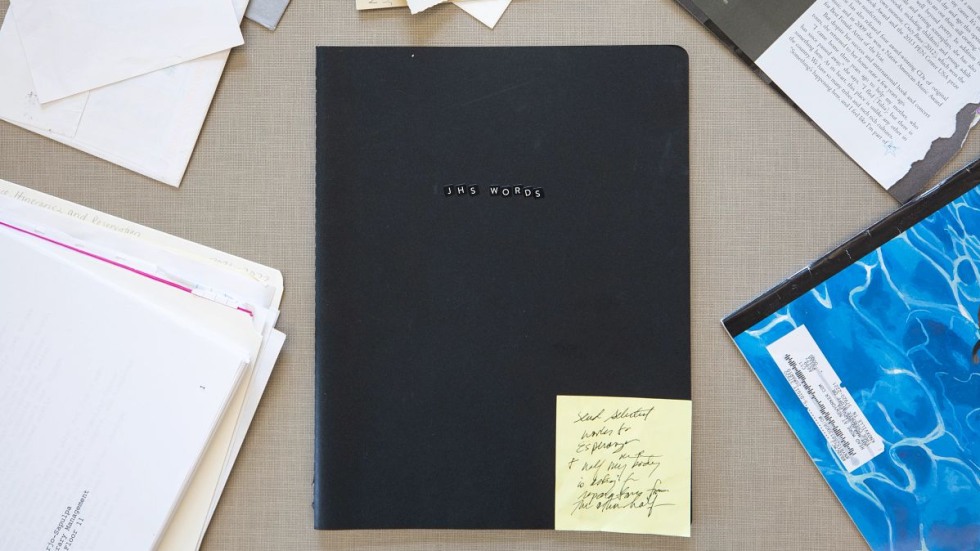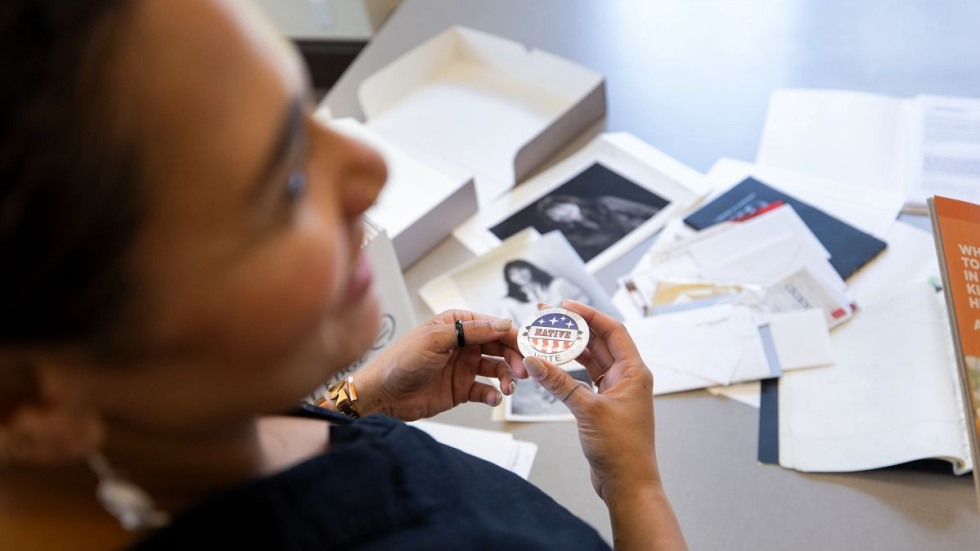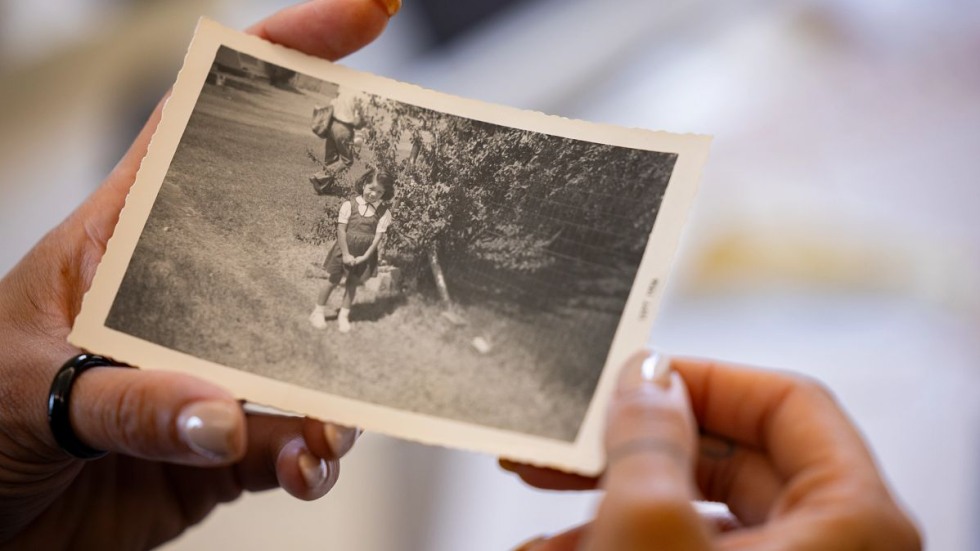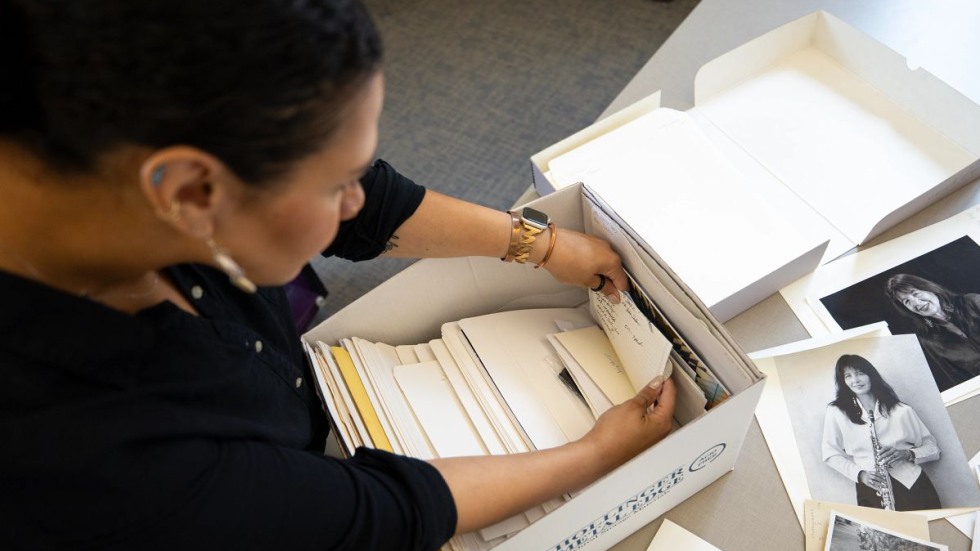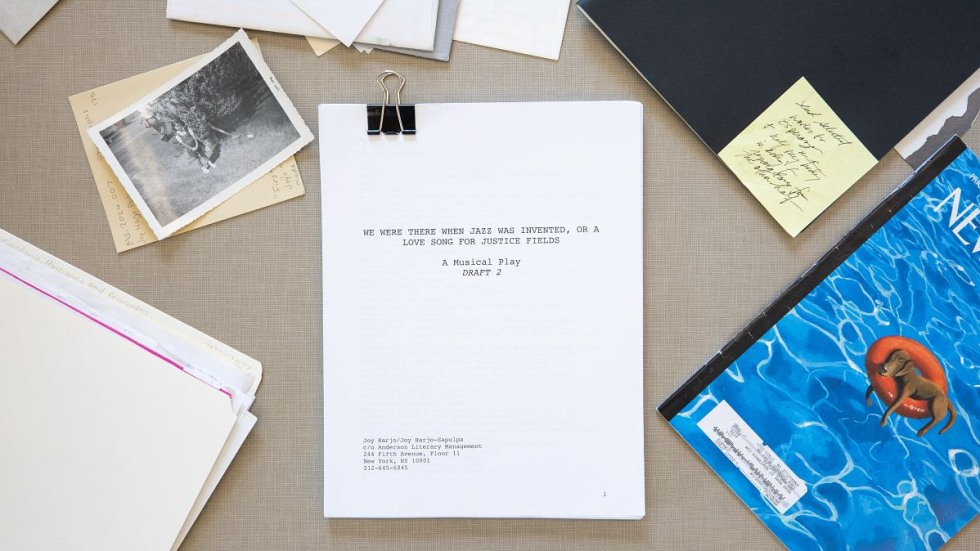PROVIDENCE, R.I. [Brown University] — The John Hay Library, home to Brown University’s special collections, has acquired the contemporary papers of acclaimed poet, musician, playwright, author and activist Joy Harjo, who served as the 23rd U.S. poet laureate from 2019 to 2022 as the first Native American to hold that honor.
The acquisition, which primarily consists of Harjo’s materials from 2021 through 2024, advances a commitment at Brown to stewarding scholarly resources that include Native and Indigenous voices and work.
“It’s an honor to have Brown collect items from my creative life,” said Harjo, a member of the Muscogee Nation who received an honorary degree from Brown in May 2024. “To know that they’ll be taken care of with the kind of care and integrity I’ve seen from the library’s curators is quite a gift.”
The collection of personal papers includes drafts of poetry, memoirs, plays and other writing, published works, photographs, journals, material related to events and speaking engagements, emails, social media posts, correspondence with family, friends and colleagues, and scripts from the television show about Indigenous teenagers in Oklahoma, “Reservation Dogs,” in which Harjo appeared.
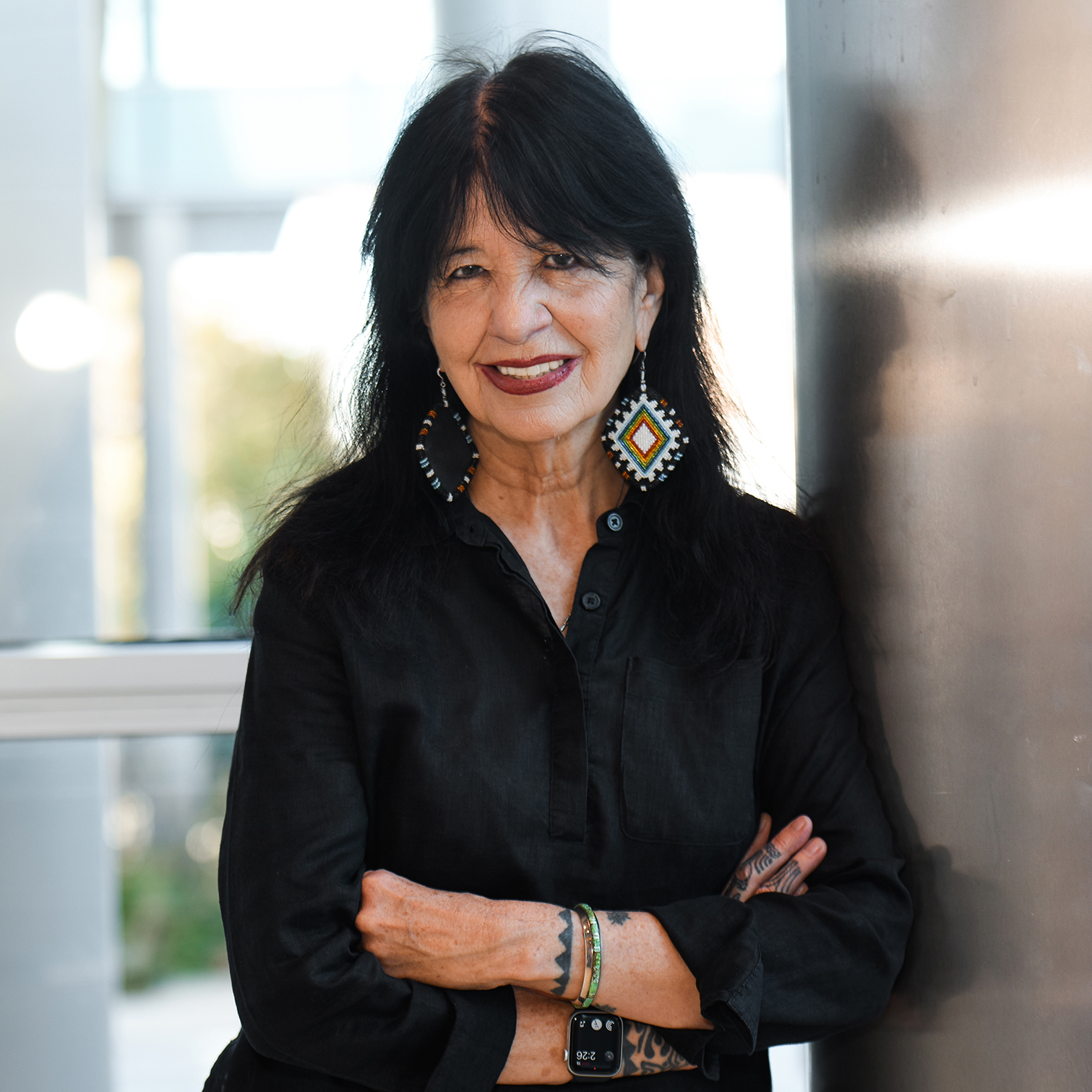
As part of the acquisition agreement, Harjo will continue to send materials to the John Hay Library on an ongoing basis throughout the duration of her life, adding to the seven boxes of items and wide assortment of digital materials the library has already received.
“Joy Harjo is one of the leading lights of poetry and literature,” said Amanda Strauss, associate university librarian for special collections at Brown and director of the Hay Library. “It’s thrilling that she chose the John Hay Library for the archive of her contemporary work, where it will enhance the library’s historically strong literary collections as well as its growing Native American and Indigenous collections.”
Strauss said the strength and breadth of Harjo’s contributions, reflected in her archival collection, support the University’s growing scholarship in Native and Indigenous studies, a new critical Native American and Indigenous studies undergraduate concentration, which just celebrated its first graduating cohort, and the library’s collections of popular literature and performance and entertainment archives.
Harjo’s original connection to Brown stemmed from her friendship with the late poet and Professor of Literary Arts and English Michael S. Harper, who taught at Brown for 43 years and was a mentor to Harjo. Harjo has fond memories of visiting him on campus many years ago.
More recently, during the COVID-19 pandemic, library curator Heather Cole was researching writers as part of an ongoing effort to strategically expand the University’s literary collections. Cole made an initial connection with Harjo through a virtual literary event, and they went on to develop a meaningful curatorial relationship that led the poet to place her archive at Brown.
As part of the acquisition process, Cole visited Harjo’s studio in Tulsa, Oklahoma, to help sort and pack the material.
"Witnessing Joy Harjo at work was a deeply profound experience,” said Cole, head of special collections instruction and curator for literary and popular culture at the Hay Library. “To be in the presence of such a prolific and accomplished artist was both humbling and inspiring.”
Harjo’s papers join those of the groundbreaking Spiderwoman Theater, adding to a growing wealth of primary source material at Brown for researchers and students to explore Native American and Indigenous scholarship, writing, performance and activism. The acquisition also deepens a commitment to addressing the historic marginalization of Native and Indigenous voices in many U.S. special collections and archives, according to Kimberly Toney, coordinating curator for Native American and Indigenous collections for the Brown University Library and the John Carter Brown Library, an independent research library on Brown’s campus focused on early colonial-era history of the Americas.
“This significant collection helps to fill historic, systemic collecting gaps and preexisting archival silences,” Toney said. “My colleagues and I are grateful to Joy Harjo for entrusting the John Hay Library with her papers.”
